Fika (Your contra-ego depletion and relationship tool)

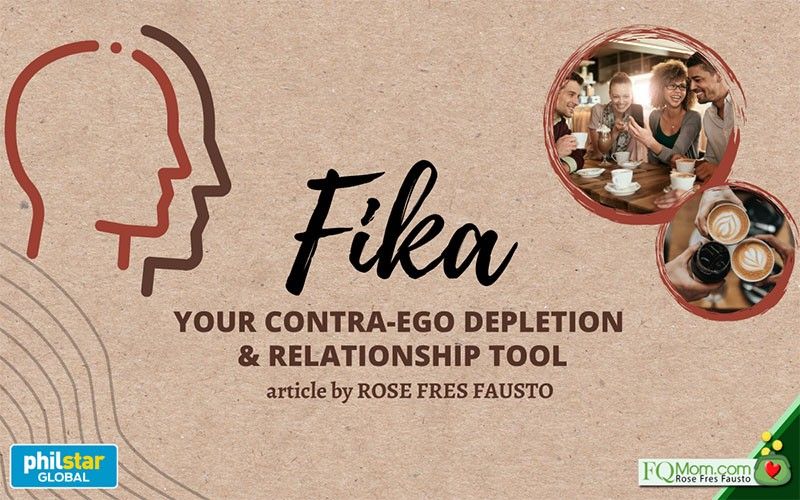
My CFA son, Enrique, jokes about the Mama Comfort Level Index. He says that when I start going out, that means that business is back. Well, I guess that index is going up because last weekend, Marvin and I heard mass at Gesu, instead of the online mass that we’ve been having since the lockdown. Then after that, we even went to check out Ikea.
Ikea is the world’s largest furniture retailer and its largest store in the world is located here in the Philippines, in Pasay City, with 65,000 square meters floor area! That is bigger than the Royal Palace of Stockholm in Sweden and the Windsor Castle in UK.
I am not really big on shopping and so I was a bit overwhelmed by the experience. It was huge and there were a lot of people – young and old alike! But I liked that the items are reasonably priced and there are so many practical items that I didn’t know existed. The showrooms are very helpful as well, especially for those just starting to have their own homes. I like how they put labels such as “This room for P24,000!” It gives the buyer ideas on how to put things together within a budget.
The line to the restaurants was so long that the waiting time was three hours! Whoa! Talo ang Disney! So, we ended up buying food from the snack bar, ready to do a “standing lunch.” We were lucky to get a table by the ledge, so we used the ledge as our seat. We had six pieces of chicken wings, two vegetable spring rolls, one hotdog in a bun, one churros, two ice cream in a cone (you buy the token then get it from the machine), and two bottled water – all for a total of P355.57! The bottled water at P29 each was more expensive than some of the food items.
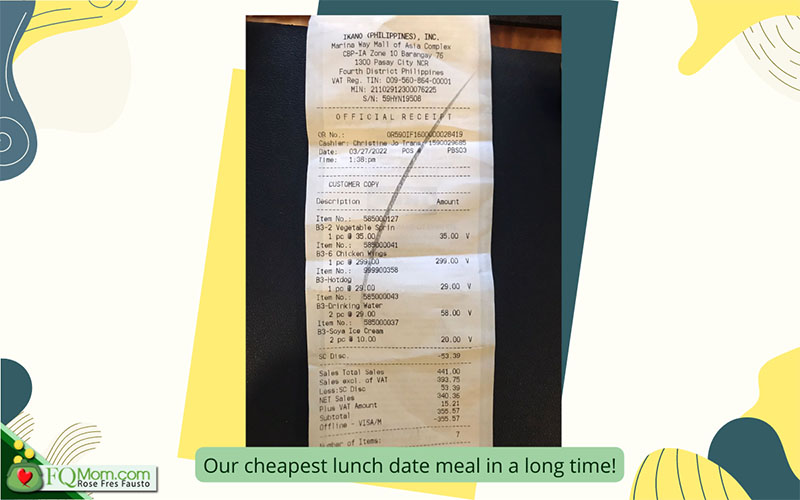
Fika culture
What I wish to discuss today is the Swedish Fika culture. Fika means Swedish coffee break. It’s a reversal of the syllables of the word kaffi (the old spelling of coffee) and used as either a noun or a verb. You can say, “Let’s have fika” or simply “Let’s fika.”
This tradition has an interesting history. The first coffee beans arrived in Sweden in 1685 not to be used as a drink but as medicine. Later on, Swedish King Charles XII introduced it as a pleasurable beverage after his visit to Turkey, bringing home some Turkish coffee together with a traditional coffee maker. Coffee drink became popular with the opening of coffee houses beginning in 1710. Then a group of elites got worried that their country should not be spending on coffee imports but should be increasing their exports for the sake of their economy. Moreover, the working class who couldn’t afford coffee were not happy about the prohibition of home distilling. All these brought about coffee bans.
King Gustav III, who hated coffee, had a peculiar experiment done to demonstrate the ill effects of coffee on health. He ordered two identical twins, condemned to death, to be the subjects of the research trial. One of the twins would drink an absurd amount of coffee every day, while the other one would drink tea. The result: Everyone involved in the study, including King Gustav III himself, died even before the experiment was concluded, except the coffee drinker!
The coffee ban ended in 1822.
Later on, the communal ritual of fika became an important part of the Swedish culture. It is taking a break to drink coffee paired with a sweet treat (cakes, pastries, cinnamon rolls, biscuits), not to be taken by your lonesome but together with friends or colleagues.
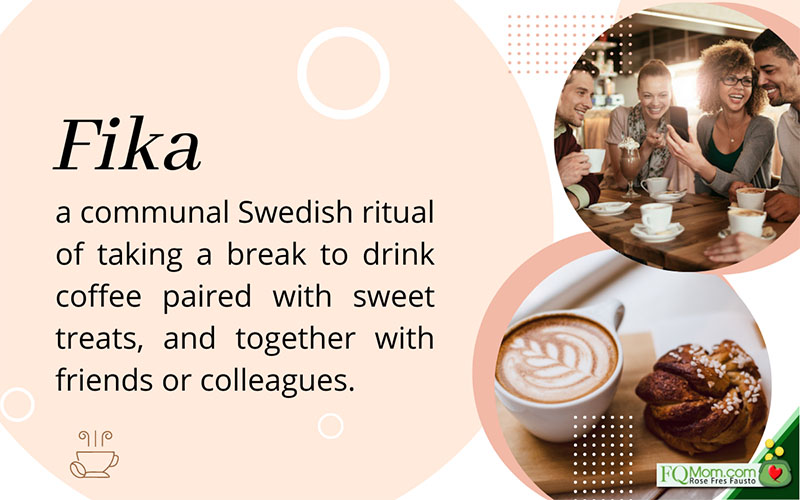
Mandated to take a break
In the early 1990s, it was observed that most accidents at work happened around 10 a.m. and 3 p.m. To minimize these accidents, work breaks were scheduled at these hours. For most Swedish companies, breaks are scheduled and even mandatory, usually at 10 a.m. and 3 p.m.
It may be easy to imagine how actual mandated fika breaks can disrupt work flow but the Swedish experience shows that they not only avoid accidents but also improve productivity.
Ego Depletion
To understand this, we need to recall the concept of Ego Depletion. This is discussed in FQ Book 2. Our ability to make rational decisions is a limited resource that can be drained by decision overload, hunger, self-restraint and extreme fatigue. In the book, I discuss studies where even the judges, who are supposed to base life-altering decisions regarding parole on facts, are affected by the time of the day they make the decisions. The likelihood of granting a parole is highest after the last meal taken by the judges. From a high of 65%, this gradually goes down to almost 0% for the last case before the next break, then it goes back up to 65% after the break, then goes down again to almost 0% before the next break. To put it bluntly, as the judges get hungrier and more exhausted, the less likely you will get a parole! (Click FQ Mom article on Ego Depletion)
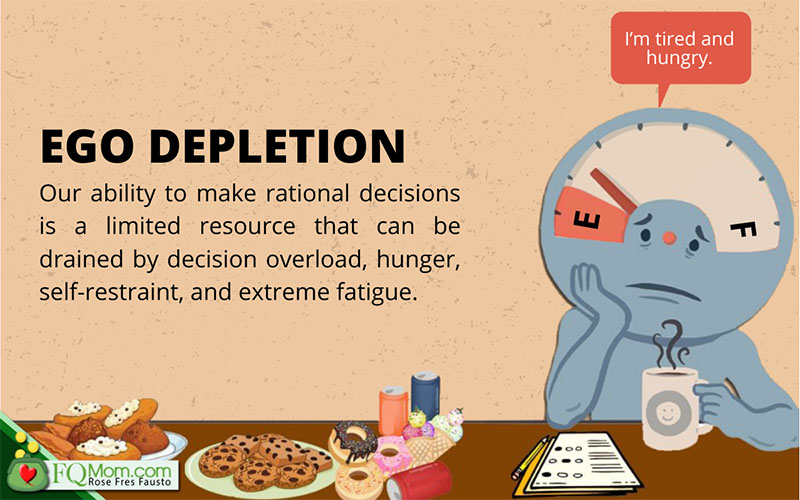
The proper fika is taken not by yourself but with others. This helps us really take a break from the work and develop relationships with co-workers and friends we fika with. It reminds us that we are social beings. As we gradually go back to face-face encounters, let’s remember to borrow this Swedish tradition to our benefit. I’ll now end this article because it’s time to find someone to fika with while working from home.
ANNOUNCEMENTS
1. Join me on March 31, 2022 on Kumu Money Lessons with FQ Mom entitled "Saving a Filipino Jewelry Heritage through Amami" with my special guest Dani Tan.
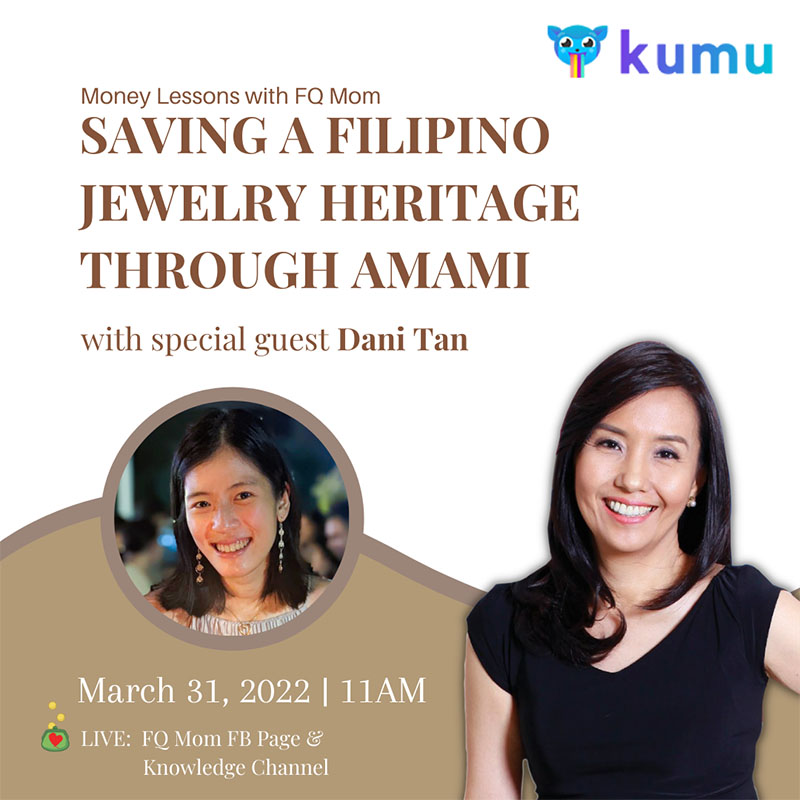
2. Grab your copy of all or any of the FQ Mom books.
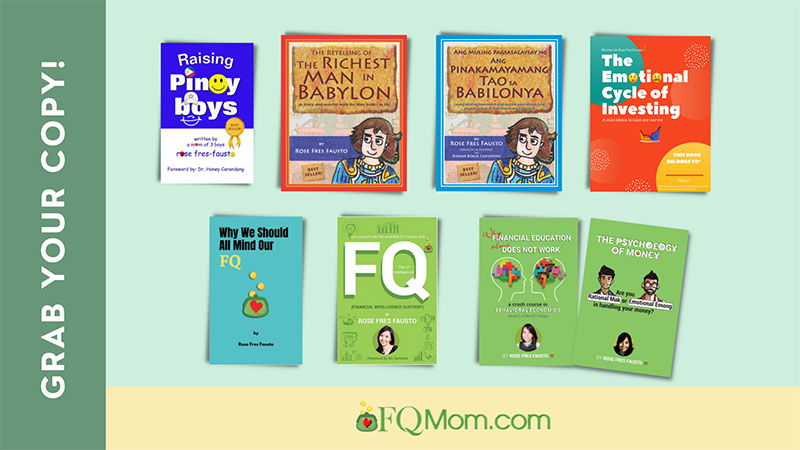
This article is also published in FQMom.com.



















